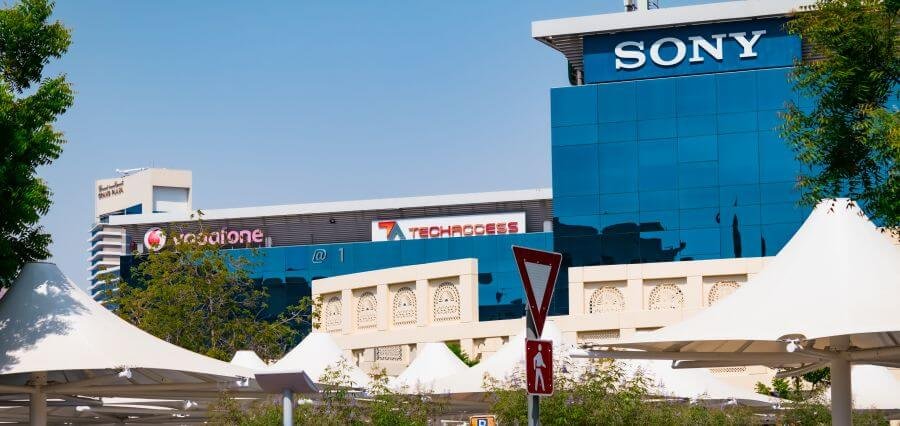#Trade Hub
Dubai’s transformation from a small trading outpost into a preferred international trade hub is one of the most remarkable success stories of the 21st century. Situated at the crossroads of Europe, Asia, and Africa, Dubai has leveraged its strategic location, innovative infrastructure, and forward-thinking policies to become a vital link in global supply chains. Today, the city is a bustling metropolis that attracts businesses, investors, and traders from around the world, making it a linchpin in international trade. Understanding the factors behind Dubai’s rise as a preferred trade hub reveals a combination of geographical advantage, visionary leadership, economic diversification, and investment in world-class infrastructure.
One of the primary reasons for Dubai’s emergence as a global trade hub is its strategic location. Positioned between major markets in Europe, Asia, and Africa, Dubai serves as a natural gateway for goods moving between these regions. This geographic advantage has been a critical factor in attracting international businesses and investors to the city. Dubai’s ports and airports are among the busiest in the world, playing a crucial role in facilitating the flow of goods across continents. Jebel Ali Port, the largest man-made harbor in the world, is a key asset in Dubai’s trade ecosystem. It handles a significant portion of the region’s container traffic and serves as a vital hub for re-exports, allowing goods to be distributed efficiently to markets across the Middle East, Africa, and beyond.
The city’s aviation sector is another pillar of its success as a trade hub. Dubai International Airport (DXB) is one of the world’s busiest airports in terms of international passenger traffic and a major center for cargo operations. The city’s flagship carrier, Emirates, has played a significant role in connecting Dubai to over 150 destinations worldwide, ensuring that the city remains a critical node in global air logistics networks. Furthermore, the development of Al Maktoum International Airport, which is set to become the world’s largest airport by capacity, underscores Dubai’s commitment to expanding its role in global trade and logistics.
Dubai’s rise as a preferred international trade hub is also a result of its business-friendly environment. The leadership of Dubai has long recognized the importance of creating a regulatory framework that attracts and supports international businesses. The city’s free zones, such as the Jebel Ali Free Zone (JAFZA) and Dubai Airport Free Zone (DAFZA), offer numerous incentives, including 100% foreign ownership, zero customs duties, and no restrictions on capital repatriation. These free zones have been instrumental in attracting multinational corporations, SMEs, and startups to set up operations in Dubai, contributing to the city’s status as a global business hub.
Economic diversification has been another key strategy in Dubai’s rise as a trade hub. While the city’s initial growth was fuelled by oil revenues, Dubai’s leadership quickly recognized the need to diversify the economy to ensure long-term sustainability. Over the past few decades, Dubai has successfully expanded its economy into sectors such as trade, tourism, finance, real estate, and logistics. This diversification has made Dubai less dependent on oil and more resilient to economic fluctuations, further enhancing its attractiveness as a global trade hub.
The development of world-class infrastructure has been a cornerstone of Dubai’s strategy to become a leading trade hub. The city’s leadership has invested heavily in building state-of-the-art ports, airports, roads, and logistics facilities to support the seamless movement of goods. The Dubai Logistics City, part of the Dubai South development, is a prime example of the city’s commitment to creating a comprehensive logistics ecosystem. This multi-modal logistics platform is designed to integrate air, sea, and land transportation, providing businesses with unparalleled connectivity and efficiency. Additionally, the city’s commitment to innovation and technology has led to the adoption of smart logistics solutions, further enhancing Dubai’s competitiveness in global trade.
Dubai’s role as a trade hub is also closely linked to its position as a global center for re-exports. The city has become a key re-export hub, particularly for goods destined for markets in Africa, the Middle East, and South Asia. The re-export sector has been a significant driver of Dubai’s economy, accounting for a substantial portion of its non-oil trade. Businesses in Dubai benefit from the city’s excellent connectivity, efficient customs procedures, and strategic location, which enable them to access a wide range of markets with ease. This has made Dubai an attractive destination for companies looking to establish regional distribution centers and tap into emerging markets.
The city’s commitment to trade facilitation is further evidenced by its participation in international trade agreements and organizations. Dubai is part of the United Arab Emirates, which is a member of the World Trade Organization (WTO) and has signed numerous free trade agreements (FTAs) with countries around the world. These agreements have helped reduce trade barriers, increase market access, and boost Dubai’s competitiveness as a global trade hub. Moreover, Dubai’s participation in initiatives such as the World Logistics Passport, a global loyalty program for freight forwarders and traders, underscores its commitment to enhancing global trade connectivity.
Dubai’s success as a trade hub is also due to its ability to adapt to changing global trends. The city has positioned itself at the forefront of emerging industries, such as e-commerce and technology, which are reshaping global trade. The COVID-19 pandemic accelerated the growth of e-commerce, and Dubai has responded by investing in infrastructure and logistics capabilities to support this rapidly expanding sector. The city’s leadership has also embraced digital transformation, with initiatives such as the Dubai Paperless Strategy, which aims to digitize government services and reduce administrative burdens on businesses. These efforts have made Dubai a leader in digital trade, further enhancing its role in the global economy.
In addition to its economic and infrastructural strengths, Dubai’s cultural diversity and cosmopolitan lifestyle have contributed to its rise as a preferred trade hub. The city is home to a multicultural population, with expatriates from over 200 countries living and working in Dubai. This diversity is reflected in Dubai’s business environment, where companies benefit from a global talent pool and a wide range of cultural perspectives. The city’s cosmopolitan nature has made it a magnet for international businesses and investors, who are drawn to its dynamic and inclusive atmosphere.
Looking ahead, Dubai’s role as a global trade hub is likely to grow even further as the city continues to innovate and adapt to changing global dynamics. The city’s leadership is focused on positioning Dubai as a leader in sustainable trade, with initiatives aimed at reducing the environmental impact of trade and logistics operations. The Dubai Clean Energy Strategy 2050, which aims to make Dubai a global center for clean energy and green economy, is a key part of this vision. As sustainability becomes an increasingly important factor in global trade, Dubai’s commitment to green practices will enhance its appeal as a forward-thinking trade hub.
In conclusion, Dubai’s rise as a preferred international trade hub is the result of a combination of strategic location, visionary leadership, economic diversification, and investment in world-class infrastructure. The city’s ability to adapt to changing global trends and embrace innovation has made it a critical node in global supply chains and a magnet for businesses and investors. As Dubai continues to evolve and expand its role in global trade, it is set to remain a key player in the global economy for years to come.




